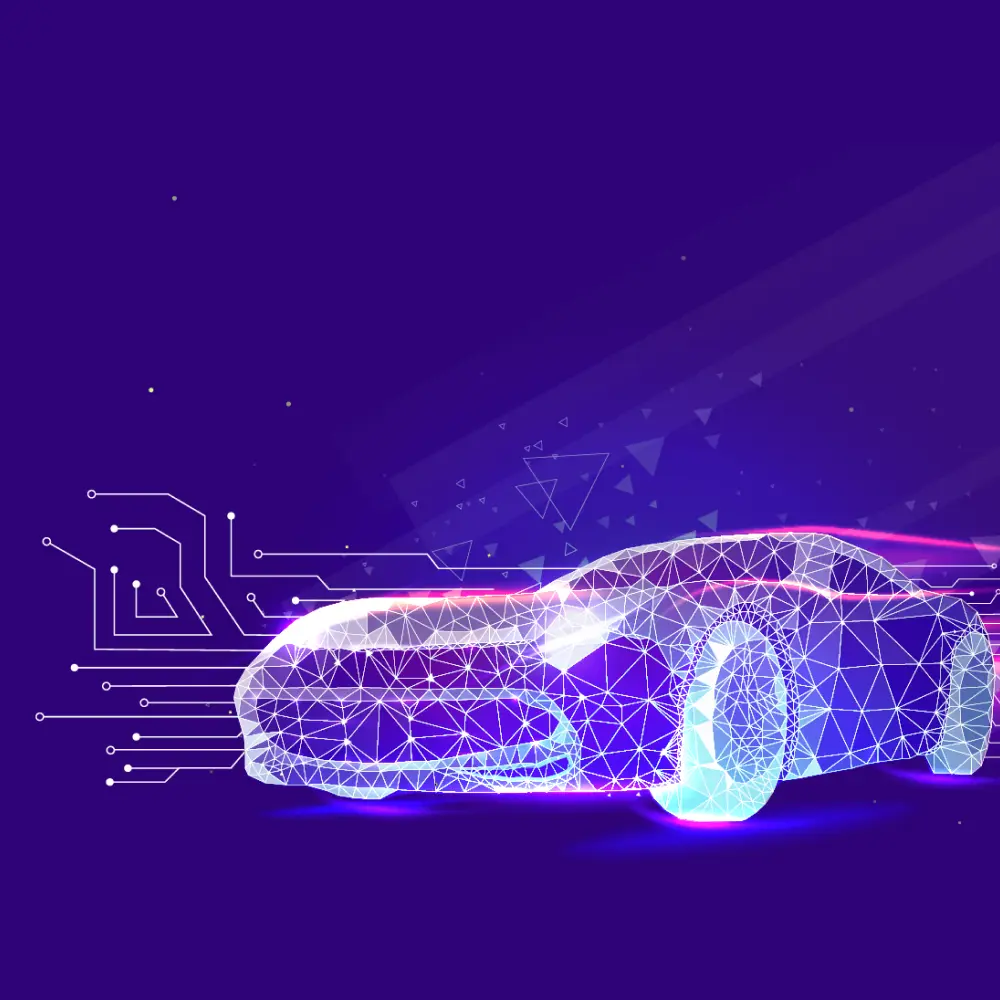Have you ever wondered why some automotive brands in India consistently outperform others, even in the face of global disruptions and evolving customer demands? Imagine trying to deliver hyper-personalized buying experiences while grappling with unpredictable supply chains, rising input costs, low showroom footfall, and intense market competition. Sounds overwhelming, right?
Did you know that over 76% of automotive leaders globally believe AI is key to future growth, yet less than 40% of Indian OEMs have fully leveraged it? In India, where the automotive market is expected to grow to $300 billion by 2026, AI in the Indian automotive industry is the lever that can drive digital transformation and sustainable growth.
From streamlining operations to delivering futuristic digital experiences, AI Use Cases in Indian Automotive OEMs are redefining how vehicles are manufactured, marketed, and maintained. Let’s explore the Top 7 AI Use Cases in Indian Automotive OEMs and how they’re helping car manufacturers evolve from traditional to intelligent mobility leaders.
1. AI-Powered Virtual Sales Assistants
Today’s car buyers demand seamless, personalized journeys. AI-powered virtual sales assistants act as digital product experts, offering intelligent, real-time support 24/7.
Maruti Suzuki introduced an AI-driven virtual sales avatar on its website, developed in partnership with DaveAI. Acting as a digital showroom assistant, the avatar interacts in real time, helping customers discover vehicles, compare features, and receive personalized recommendations. With over 18 million interactions in just 18 months, this AI solution proves the power of AI in automotive sales and service.
This represents a foundational example of how AI Use Cases in Indian Automotive OEMs can significantly elevate customer engagement.
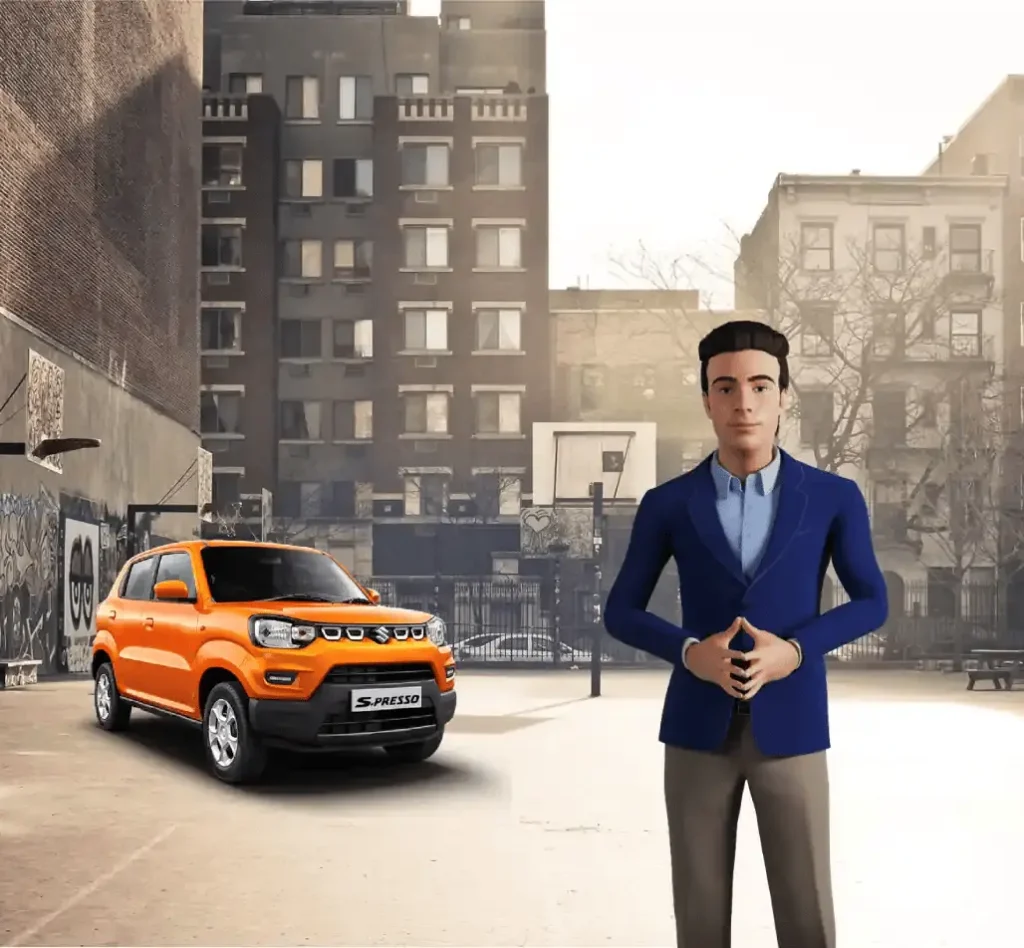
2. Predictive Maintenance Using AI and IoT
Unexpected vehicle breakdowns not only frustrate customers but also affect brand trust. AI-powered predictive maintenance solutions leverage vehicle data to forecast and prevent potential failures.
Tata Motors’ FleetEdge platform uses AI and IoT to analyze real-time data from connected vehicles. The system predicts component wear-and-tear, enabling proactive maintenance schedules. As a result, fleet operators see increased uptime, lower costs, and enhanced customer satisfaction.
This is a prime illustration of AI Use Cases in Indian Automotive OEMs where AI enhances post-sale service quality.
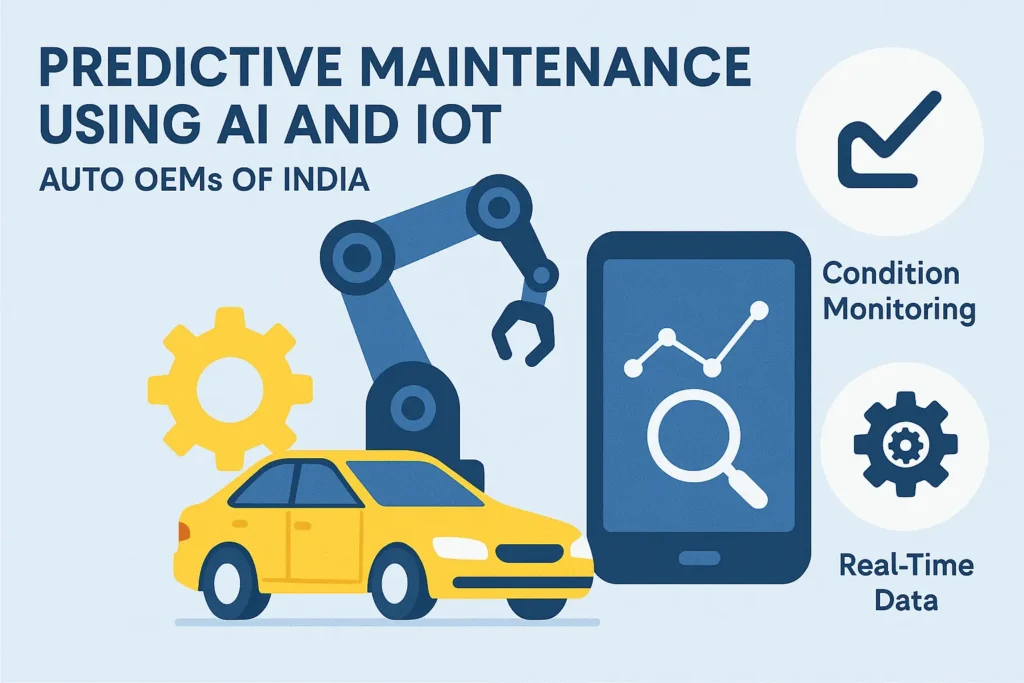
3. Intelligent Quality Control in Manufacturing
Manual inspection on production lines can miss defects and slow down workflows. AI-powered vision systems automate quality checks and ensure consistency at scale.
Mahindra First Choice Wheels implemented AI-based computer vision systems to inspect vehicle parts and surfaces in real time. These systems detect micro-defects, color mismatches, and structural issues—much faster and more accurately than human inspectors.
This showcases how AI solutions for car manufacturers are modernizing core manufacturing operations to enhance efficiency and reliability.
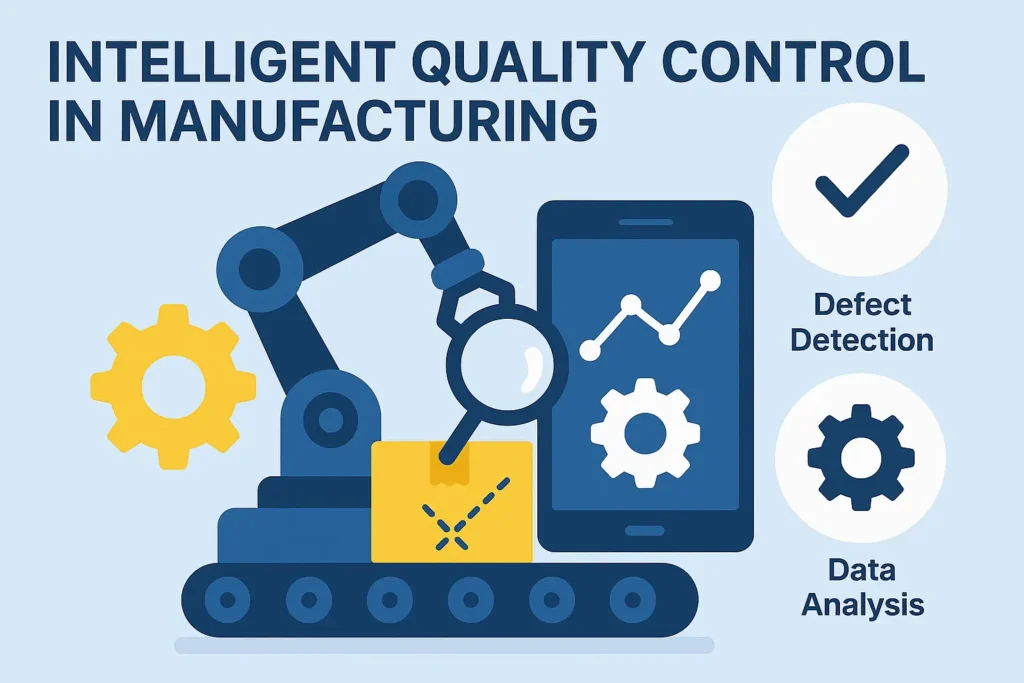
4. Autonomous and Driver-Assist Technologies
While full self-driving cars are still years away in India, AI trends in automotive 2025 point to a rise in Advanced Driver Assistance Systems (ADAS) that significantly enhance road safety.
MG’s Astor model comes with AI-based ADAS features such as forward collision warning, lane departure alert, and automatic emergency braking. These systems help prevent accidents and reduce driving fatigue, especially in congested city environments.
Such safety features underline the potential of AI Use Cases in Indian Automotive OEMs to enhance user experience and drive innovation.
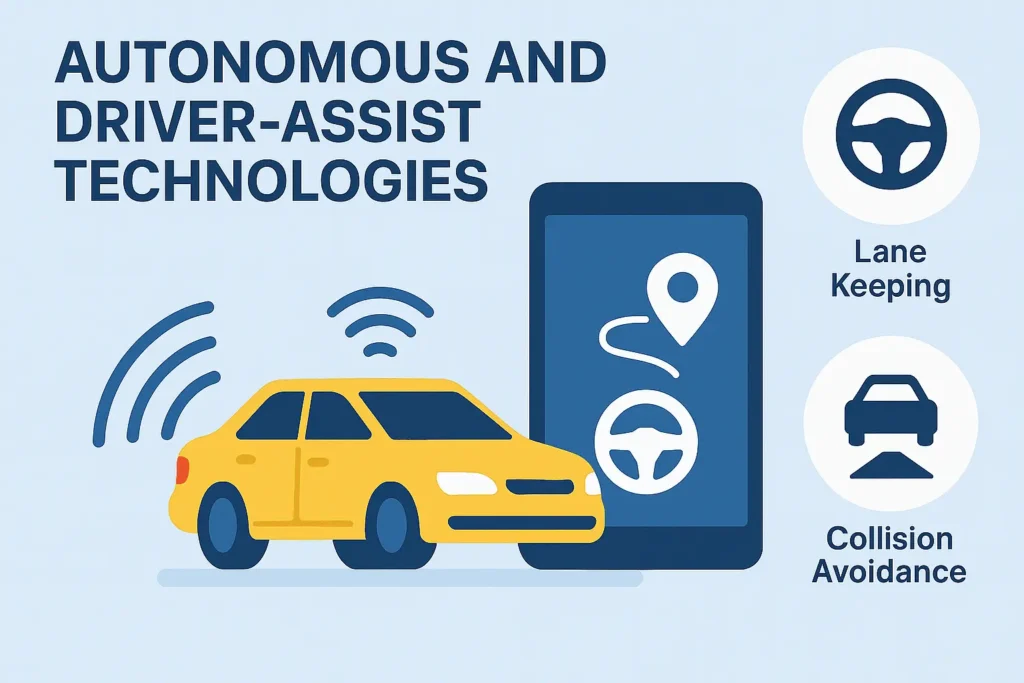
5. AI-Driven Demand Forecasting and Inventory Management
Balancing supply with unpredictable demand is a major pain point. AI forecasting tools analyze regional sales data, consumer behavior, and external factors to make accurate predictions.
Ford India has implemented an AI-driven demand forecasting system to optimize production schedules and inventory management across its dealerships. The AI system processes historical data, sales trends, market conditions, and consumer preferences to predict vehicle demand for different models and regions.
For instance, Ford India’s forecasting system helped the company avoid overstocking of low-demand models while ensuring popular models like the EcoSport were sufficiently stocked across all regions.
This reinforces the importance of AI Use Cases in Indian Automotive OEMs in aligning supply chain decisions with real-time market needs.
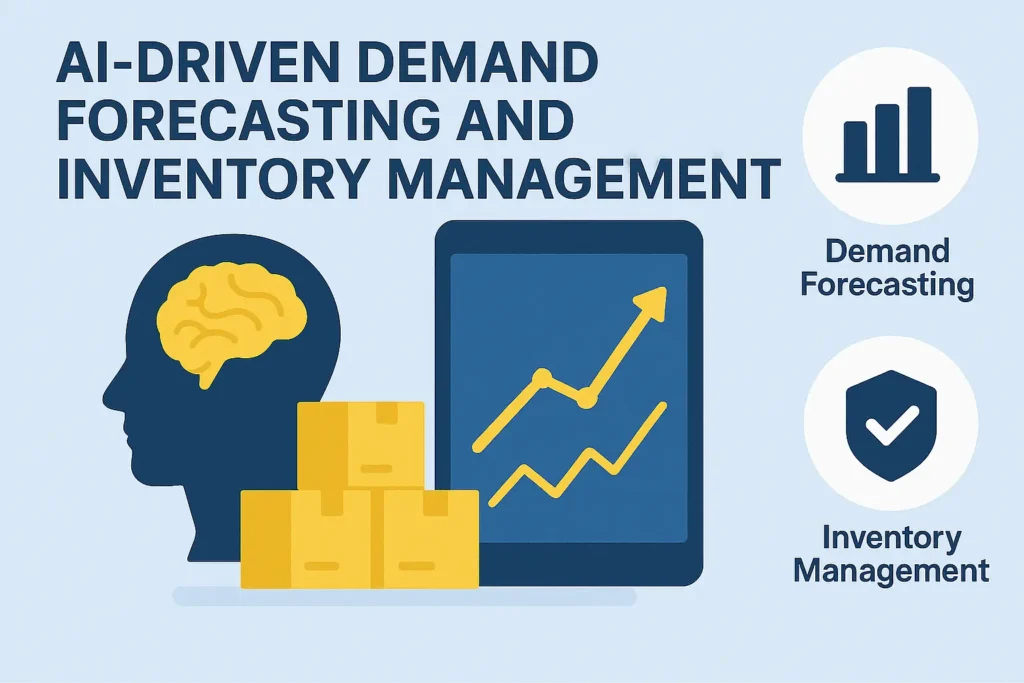
6. AI-Powered WhatsApp Chatbots for Personalization
Customers are now comfortable interacting with brands on messaging platforms. AI chatbots on WhatsApp offer immediate, conversational assistance, creating personalized customer journeys at scale.
BYD partnered with DaveAI to launch an intelligent AI WhatsApp chatbot. The bot helps users explore car features, schedule test drives, and resolve queries—all within a familiar interface.
This is a breakthrough in AI in automotive sales and service, and highlights the versatility of AI Use Cases in Indian Automotive OEMs in expanding brand presence beyond traditional channels.
7. AI for Supply Chain Optimization
India’s automotive supply chains are vast and complex. AI enables end-to-end visibility and smarter decision-making across procurement, logistics, and vendor management.
Ashok Leyland uses AI to track supplier performance, identify bottlenecks, and recommend alternate sourcing strategies. The system also anticipates delays and suggests dynamic adjustments in real time.
This case demonstrates how strategic AI solutions for car manufacturers help create resilient, agile supply chains.
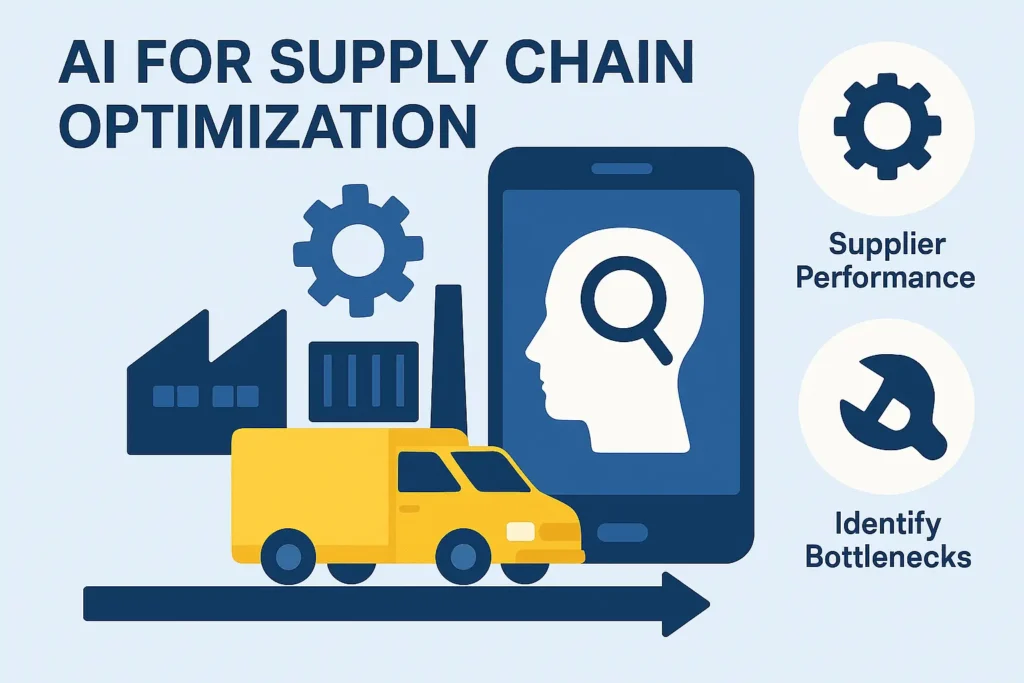
The Road Ahead for AI in Indian Automotive OEMs
Each of these AI Use Cases in Indian Automotive OEMs reflects a step toward smarter operations, stronger customer engagement, and scalable growth. As the automotive sector pivots towards digital transformation, OEMs embracing AI early will lead the pack in 2025.
From digital showrooms and predictive analytics to AI-enabled logistics and service automation, the scope of AI in the Indian automotive industry is limitless. It’s time to treat AI not as a tech add-on but as the engine of innovation.
How DaveAI is Empowering Indian OEMs
DaveAI is at the forefront of delivering scalable, intelligent solutions tailored to the automotive industry. Our AI-powered virtual avatars, whatsapp chatbots, and retail solutions are transforming how Indian OEMs like Maruti Suzuki and BYD engage with customers.
Whether you’re looking to enhance digital sales, automate customer support, or modernize your retail presence, DaveAI offers enterprise-grade platforms built for results.
Want to unlock the next wave of growth with AI? Let’s explore how intelligent solutions can drive value across your automotive brand. Visit DaveAI to get started.
FAQ
AI-powered virtual assistants and chatbots offer 24/7 personalized interactions, driving faster decision-making and higher satisfaction.
Yes. AI optimizes everything from quality control and supply chains to customer support, significantly lowering cost overheads.
With modular platforms and scalable pricing, even mid-sized OEMs can implement AI across critical functions.
Identify a business pain point—like low lead conversion or high service costs—and collaborate with an AI partner like DaveAI to pilot a solution.
